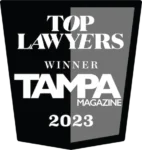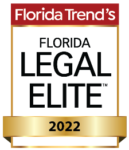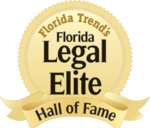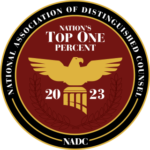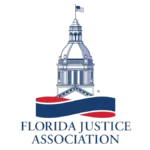Florida Justice Association President and Swope, Rodante P.A. Founding Partner Dale Swope and Senator Jeff Brandes Debate the Road Ahead for Autonomous Vehicles Live on WMNF Community Radio
 |  |
Debate on Autonomous Vehicles/Self Driving Cars – WMNFwww.wmnf.org Autonomous vehicles or self-driving cars are in the development stage. Companies such as Google, Tesla and the major automakers are road testing cars right now—to see how self driving cars in all sorts of conditions. The hope is that AV’s will become the predominant form of ground transportation in the country. Among the benefits touted… Read more » |
The Case for Responsible Legislation
The NHTSA is expecting the states to modernize the regulatory structure and address the issues that are expected with Autonomous Vehicles (“AV”).
In September 2017, the National Highway Traffic Safety Administration (NHTSA) issued its updated guidance to the AV industry, titled “Automated Driving Systems 2.0: A Vision for Safety” (ADS 2.0). See Nat’l Highway Traffic Safety Admin., Automated Driving Systems 2.0: A Vision for Safety. The NHTSA guidelines are a “nonregulatory approach to automated vehicle technology safety,” with “voluntary guidance and suggestions” for the automotive industry and state legislatures.
Eventually, the NHTSA will pass laws authorizing rules for performance of the vehicles which will pre-empt state laws in some ways.
A week before the NHTSA issued Automated Driving Systems 2.0, the House unanimously passed the country’s first major national AV bill. See SELF DRIVE Act, H.R. 3388, 115th Cong. (2017). If passed, the bill would result in an influx of AVs exempt from traditional auto safety standards (see Self Drive Act § 6) and eliminate some of the state regulations currently in place.
The SELF DRIVE Act explicitly prohibits states from implementing standards for the “design, construction, or performance of highly automated vehicles” unless the state regulation mirrors the national performance and safety standards and those powers are delegated to the NHTSA. See Self Drive Act § 3.
A similar bill in the Senate is the AV START Act, and it contains an additional provision preserving liability claims arising under a state statute that allows civil remedies. See AV START Act, S. 1885, 115th Cong. § 3 (2017). It would similarly preempt state governments from legislating on the “design, construction, or performance” standards for AVs, but provides for different rulemaking procedures in developing federal regulations.
But Florida has laws making it legal to operate AVs ahead of the safe tech, and WAY ahead of the federal rules, mentioned above, that are still being developed.
For example, in 2012, the Florida legislature passed a law authorizing licensed (human) drivers to operate AVs, at least “for the purpose of testing the technology.” See CS/HB 1207; See also § 316.85, Fla. Stat. (2012) and §316.86, Fla. Stat. (2012).
In 2016, HB 7027 (amendments to §§ 316.303, 316.85 and 319.145, Fla. Stat., as part of the omnibus transportation bill, spearheaded by Senator Brandes) passed unanimously in the House and Senate. See § 316.85(1), Fla. Stat. (2016); House of Representatives Final Bill Analysis, p.7; see also HB 7027.
Right now, the NHTSA recommends that states always have a responsibility to provide licensing for motor vehicles in their jurisdiction, enacting and enforcing traffic laws and regulations, conducting safety inspections, and regulating motor vehicle insurance and liability. See NHTSA, Automated Driving Systems 2.0: A Vision for Safety, p. 20.
This is not the first time we have had disruption in the personal transportation space.
In 1939, Florida first required a driver’s license. In 1941, Florida launched the first DWI law and enacted speed limits, and Florida created its first seatbelt law in 1986. See this historical timeline from the Florida Department of Highway Safety and Motor Vehicles. With these laws, we created a system that permitted technological advances.
The prior laws were designed around the regulation of the DRIVER or operator.
Cars have, until now, done what the operator told them to. Hit the gas and they speed up. Hit the brakes and they slow down. So it made sense to hold the operator accountable for the actions of the vehicle, criminally and civilly. See e.g. §§ 324,021, Fla.Stat. (2017) and 316.93, Fla. Stat (2017).
What Florida law currently permits with AVs?
Current law in Florida includes § 316.003(2), Fla. Stat. (2017), where it defines “Autonomous Vehicle” as any vehicle equipped with “autonomous technology” which is then defined as “technology installed on a motor vehicle that has the capability to drive the vehicle on which the technology is installed without the active control or monitoring by a human operator.” It also contains exclusions clarifying the “technology” is referring to that which drives without the “active control or monitoring by a human operator.”
Also, § 316.85 Fla. Stat, (2017), permits licensed drivers to operate AVs in autonomous mode and clarifies that the “person” is deemed the operator of the AV.
Section 316.86, Fla. Stat. (2017), immunizes the “original manufacturer” if the vehicle is converted into an AV by a “third party,” unless the defect was present in the vehicle as “originally manufactured.”
Section 319.145, Fla. Stat. (2017) requires AVs to “meet applicable federal standards and regulations” and to: have a system to alert operator if failure detected, which requires operator to take control or bring the vehicle to a complete stop; have a means, inside the vehicle, to visually indicate vehicle operating in autonomous mode; and be capable of complying with traffic laws.
Recently HB 5001 (General Appropriations Act) was passed and creates a $500,000 in nonrecurring funds from the General Revenue Fund for the Florida Polytechnic University Advanced Mobility Institute which works in partnership with SunTrax – the facility dedicated to the testing and development of AV vehicles.
Technology is NOT Ready for This.
There is an expected massive launch of autonomous vehicles. See Alexandria Sage and Paul Lienert, GM plans large-scale launch of self-driving cars in U.S. cities in 2019, Reuters (Nov. 30, 2017).
Tesla’s are the only ones in the hands of ordinary public, not highly trained and specially screened operators, and there are violent crashes – including this weekend’s 60mph into back of fire truck. See Tesla was in Autopilot mode before Utah crash, driver tells police – NBC News (May 14, 2018).
Hacking is a massive problem which indicates the tech is not ready for the level of deregulation that our current law provides. See Hackers have self-driving cars in their headlights – Financial Times (March 15, 2018).
What is Florida getting back from this?
The jobs are still in Palo Alto and the only AV jobs here in Florida are for lobbyists. See Tim Higgins, VW, Hyundai Turn to Driverless-Car Startup in Silicon Valley, Wall Street Journal (Jan. 4, 2018).
No investment is being made by AV manufacturers. Instead, we are spending $100 million for the testing of AVs. See What Florida is getting from the massive ‘omnibus’ spending bill – Tampa Bay Times (March 22, 2018).
FIVE main things we think Florida laws lack:
- A system for registration and FR for AV manufacturers or modifier
- A requirement to make crash data and intervention data available to the public as it is in California
- A requirement that the manufacture SELF CERTIFY the AV – at a minimum – so that we know that it has tested it
- A standard to establish liability on owners, manufacturers and insurers
- Indicator to those on outside that it is in AV mode
The Florida Justice Association has proposed legislation that incorporates these ideas into a draft amendment to SB 712. See Florida Justice Association’s Proposed Amendments to CS/SB 712; see also Florida Justice Association’s line revisions to CS/SB 712.


